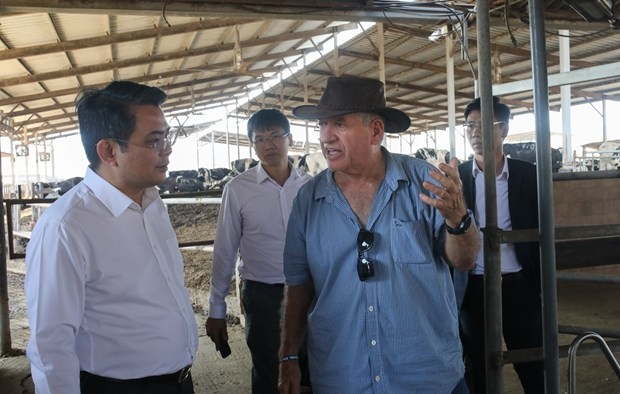Vietnam learns about collective economy models in Israel
A delegation of the Ministry of Planning and Investment paid a visit to Israel from September 4 to 9 to learn experience in developing the collective economy and cooperatives there.

The delegation was led by Director of the ministry’s Agency for Cooperative Development Phung Quoc Chi, who is also head of the compilation group for the draft revised Law on Cooperatives. Some members of the compilation group from the National Assembly Office and the ministry also joined the delegation.
The officials had working sessions with the Ministry of Economy and Industry, the Ministry of Agriculture and Rural Development, the Kibbutz Federation, and the Agriculture Research Organisation of Israel to learn about management mechanisms for the collective economy and cooperatives, such models as Kibbutz (a model in which members own common assets and work together) and Moshav (a model similar to Kibbutz but its members possess their own assets), and rural residential clusters.
They also visited some outstanding Kibbutz examples to gain an insight into their production and business models, relations between executive boards and members, and models for the distribution of products, services, income, and other interests.
First appearing in 1909, Kibbutz developed strongly in Israel in the 1960s and 1970s. There are about 270 Kibbutzim in the country at present, and all of them have aligned their production and business models to the modern socio-economic context, with science - technology playing a crucial role.
In 2021, Kibbutz in Israel generated NIS50.3 billion (US$14.5 billion) in revenue and NIS1.5 million (US$440,000) for each member, and contributed over 50% of total exports, statistics show.
